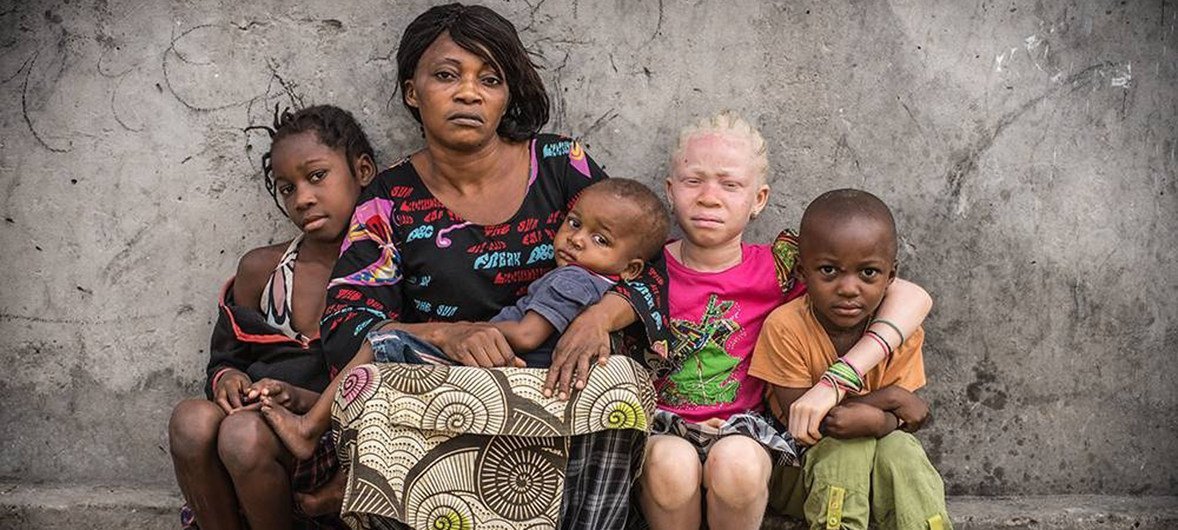
Theme: "The Tenth Anniversary of the International Year of the Family: A Framework for Action"
The International Day of Families is being observed for the eleventh time on 15 May 2004. Proclaimed by the United Nations General Assembly in its resolution 47/237 of 20 September 1993, this annual observance reflects the importance which the international community attaches to families regarding their situation around the world.
The International Day of Families provides an opportunity to promote awareness of issues relating to families as basic units of society as well as to promote appropriate action.
The Day can become a powerful mobilizing factor on behalf of families in all countries, which avail themselves of this opportunity and demonstrate support of family issues appropriate to each society. The 2004 observance of the International Day of Families also offers a valuable opportunity for families to demonstrate their solidarity in the quest for better standards of life. The international theme for 2004 is "Observance of the Tenth Anniversary of the International Year of the Family in 2004",
Governments, non-governmental organizations, educational institutions, religious groups and individuals can promote a better understanding of the functions and problems, strengths and needs of families by organizing observances of the International Day of Families. The Day also provides an opportunity to increase knowledge of the economic, cultural, social and demographic processes affecting families.
The Programme on the Family of the Division for Social Policy and Development, within the Department of Economic and Social Affairs, is the focal point for family matters in the United Nations system. As such, it is offering the following suggestions for the
observance of the Day.
Observing the Day at the National Level
In preparing/or the Day, Governments may wish to use 15 May as an occasion to initiate family-oriented projects, entry into force of family legislation or starting discussion on family policies in the country (special conferences, cultural festivals, special announcements end other similar events).
The support and active involvement of the media in its programme is central to the success of the Day. Because the Day is a very time-limited event, it lends itself well to an intensive and focused media campaign. The official logo for the International Year of the Family has become a permanent fixture of the International Day of Families, and represents a useful instrument for such action.
The active engagement of the non-governmental organizations is instrumental in the success of the Day's observance. For the International Day of Families in 2004 and successive Days, it is vital that non-governmental organizations once again fully mobilize their invaluable substantive expertise, organizational potential, grass-root outreach as well as human and material resources. Governments should seek the active partnership of non-governmental organizations and provide necessary support for the activities of the voluntary sector. Partnerships among public, private and volunteer organizations that serve families should be encouraged.
Suggestions for observing the Day at the Local Level
Drawing on past experiences, the following are some examples of the kinds of
programmes, which could be undertaken for the Day's observance:
- Family and community fora and workshops, to explore issues and offer options for strengthening families. Fora can also provide information on family support services, such as counselling, financial assistance, advisory and information services.
- Special events in educational settings such as parent/teacher gatherings or student activities can highlight families.
- Special family fares or free family tickets on public transportation and other incentives to give additional emphasis to the Day and to facilitate the involvement of families.
- Free entrance for families to museums, exhibitions, concerts and other cultural attractions.
- Official proclamations of the Day by mayors and other local authorities.
- Proclamations of “Family Week”.
- Production of documentary films or promotional vignettes on families to be shown on national and local television stations.
- Arranging special exhibitions of publications, photographs, children’s drawings, posters and other materials on families.
- Launching family-related publications.
- Coverage of the Day’s events by the news media, including television, radio and newspapers. The latter could also carry feature articles and special supplements on the Day, as well as a series on family issues.
- Organization of essay competitions on the family.
- Press conferences by research institutions and others concerned with family issues can raise public awareness of priority concerns.
Message of the Secretary General
English
 Welcome to the United Nations
Welcome to the United Nations